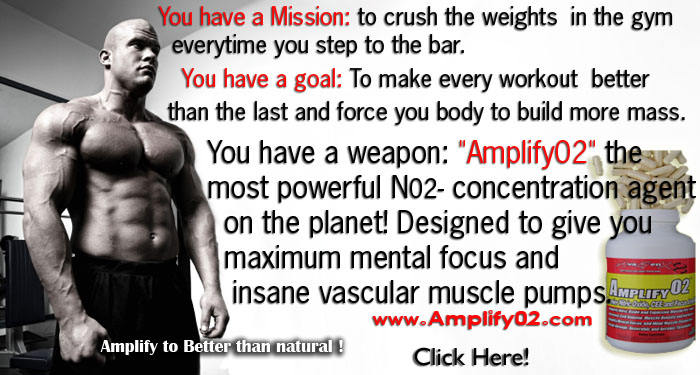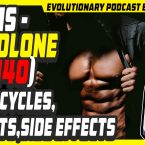Sign up to Get FREE Steroids, SARMS, Peptides eBooks
There is a big deal made anytime a UFC fighter gets busted for testing positive on a steroid test.However, what gets buried under the news desks is all of the other drugs taken by these mixed martial arts fighters take to give them a much bigger advantage over their competition than steroids ever would.
Sean Sherk was a mixed martial arts fighter on the rise. He was the UFC lightweight champion and his popularity was growing along with his paychecks. Returning from an injury, he was able to defend his title after beating Hermes Franca via unanimous decision on all three judges’ scorecards. toutefois, this is where the good times ended for Sherk and his troubles began.
Not long after the fight, Sherk tested positive for the steroid Nandrolone and was stripped of his lightweight title. As if losing his title wasn’t enough, Sherk also received a year-long suspension and a $2,500 amende. And to add insult to injury, his fan base has dwindled in his absence from the sport as well.
 Luckily for Sherk, his suspension has been lifted and he is scheduled to fight once again as he takes on current lightweight champion B.J. Penn on May 24th. But even if he wins the bout Sherk still has a long road ahead if he is to ever get where he once was. And anyone who has a decent knowledge of steroids really has to ask one questions: Did Sherk really deserve all of this after testing positive for one steroid?
Luckily for Sherk, his suspension has been lifted and he is scheduled to fight once again as he takes on current lightweight champion B.J. Penn on May 24th. But even if he wins the bout Sherk still has a long road ahead if he is to ever get where he once was. And anyone who has a decent knowledge of steroids really has to ask one questions: Did Sherk really deserve all of this after testing positive for one steroid?
Oui, I know about the competitive advantage argument that nearly all sports organizations and federations subscribe to and so, as long as they are illegal, steroids will never be acceptable to use by pro athletes. But in all reality, steroids don’t give people quite the advantage in a sport such as mixed martial arts as most would think. en fait, there are some drugs that give MMA athletes a bigger advantage that fall under the radar within the media and average fans.
Long-held common arguments against using steroids in an MMA-type setting are that, going beyond just the competitive advantage thing, they give fighters even more strength and power which could lead to potential brain-damaging or even lethal blows. Keeping steroids out of the ring would thus prevent more injuries, or even deaths.
But in all reality, fighting sports like mixed martial arts require much more than just strength and power to be a success in the long-term. Any good fighter requires striking, Wrestling, and Brazilian jiu-jitsu skills in addition to one often overlooked attribute – stamina.
In the UFC, which is the sport’s premier organization, all rounds are five minutes long with just a minute rest in between each one. Regular matches are typically three rounds long while championship matches are five rounds. In the currently defunct PRIDE Fighting Championships (a former UFC rival in MMA) some rounds would last a freakishly-long 10 minutes. Now tell me what major advantage steroids are going to give a person in minute nine of a round?
Many expert doctors and trainers agree that steroids can actually be of hindrance in sports like MMA where stamina comes into play even more than sheer size and strength do. Any major weight gain, even if it is muscle, in such a short amount of time will have a negative effect on a fighter’s stamina as the fight drags on.
Now it’s true that a few steroids out there can create a positive effect on one’s endurance such as Equipoise. But how often do you see fighters getting caught using Equipoise? When someone fails a test before or after a fight, it’s often for something like Stanozolol or Nandrolone. And in a lot of cases, fighters will use drugs like these to help them recover from an injury.
All of his brings me to wonder why steroids are so persecuted in the sport of mixed martial arts fighting when there are other drugs being used that may give the fighters an even bigger competitive advantage than do roids. Drugs that artificially enhance one’s endurance so much that it allows them to fight longer and way harder than would normally be possible.
One drug specifically that I can think of that would give an MMA competitor this sizeable advantage is EPO (erythroproietin).  This drug, which has been utilized by professional cyclists for years, was a staple among fighters in the aforementioned Pride Fighting. It acts as a growth agent to stimulate the production of red blood cells and more red blood cells means more endurance.
This drug, which has been utilized by professional cyclists for years, was a staple among fighters in the aforementioned Pride Fighting. It acts as a growth agent to stimulate the production of red blood cells and more red blood cells means more endurance.
What’s interesting about EPO is that it occurs naturally within the body but the drug version of it seeks to make the kidneys turn up the level of RBC produced. But even more interesting than all of this is that the UFC fighters don’t get tested for it. So that means that its use can go unchecked and is a major reason you won’t hear about it on the news. Except for in cycling, there’s no scandal to be exposed here and the subject isn’t shocking enough for the media.
Now you’ll hear of some UFC stars like B.J. Penn and Joe Lauzon using the “sleep chamber” which is a bed that simulates being at a high-altitude. And this subsequently raises one’s RBC count as reduced air pressure increases red blood cell production. But why go to all of this trouble when you can simply use EPO? And I’m sure that many MMA athletes do take the much easier route.
Another major competitive advantage for fighters can be gained by using sleep inertia drugs such as amphetamines. The thing amphetamines would do for a fighter is stimulate their nervous system which, à son tour, erases thoughts of fatigue, increases their heart rate, and rapidly raises their energy levels.
Drugs like Ritalin, Benzédrine, and Dextroamphetamine are common amphetamines and would be a huge advantage to any UFC fighter. This is tested for in MMA but it usually leaves your system in less than three days. Et encore, you don’t hear about major news outlets reporting fighters getting busted for using these drugs.
So what’s the bias against steroids? À mon avis, it stems from the fact that so many other pro sports organizations have demonized them that it wasn’t long before the sport of mixed martial arts followed suit. And since steroids are illegal in the United States and UFC events take place here, it’s only obvious that they cave into the pressures of the state.
On top of this, the media is to blame as well since reporting about a major athlete testing positive for steroids always seems to draw a top headline. D'autre part, Amphetamines and EPO usage among athletes just isn’t a hot enough bandwagon topic to jump on for the media.
And if you disagree with all of this, just look at the differences in how the steroids issue is handled in the US and its major MMA organization, l'UFC, versus Japan and its formerly popular PRIDE Fighting Championships.
In the US steroids are banned from pro sports, the media chastises roids and juicers, and it’s argued that MMA fighters gain competitive advantages using them. Contrast that with Japan where steroids are not tested for in sports, the media does not think that roids will prove to be the undoing of the world, and many Japanese people don’t argue that juicers have a huge upper hand in MMA.
The former president and CEO of PRIDE, Nobuyuki Sakakibara, shined some light on this by saying, “We don\'t test for steroids or we don\'t have a third party to test for steroids. But we don\'t think that always the steroid user has an advantage over a fighter who\'s not using steroids. And we don\'t know who is using steroids and who is not using steroids. But we don\'t know if always the steroid users are winning over the non-steroid users.”
Regarding the situation in Japan with steroid testing in sports, he added, “We are not opposing American regulations and requirements of steroid testing. But in Japan there\'s no such thing. We are not required to test steroids for any fighter or any sports whatsoever. So we don\'t need, so we don\'t do. If we come to the U.S. and of course we have to follow their rules and regulations. If we have to do, we have to do.”
This just shows the differences in culture at work. Steroids weren’t such a big deal in Japanese MMA but they have become a huge deal in American MMA due to the media and rigid laws in the US. And it’s obvious by the lack of reporting on EPO and amphetamine usage that there definitely is some sort of bias against steroids.
But to sit here and complain about it will do no good. The US laws on steroids aren’t budging anytime soon and as long as the public is paying attention, negativity towards roids in MMA and other sports will always be a hot new topic. Meanwhile people will be getting away with using EPO and amphetamines all day long negating the whole unfair advantage argument. But I guess that’s just the steroid double standard at work again.
[Sc:signoff-std]







